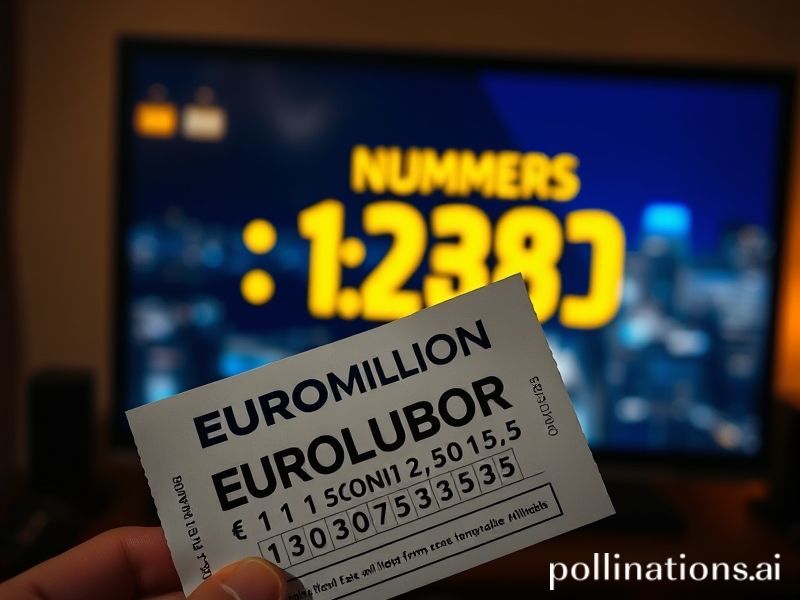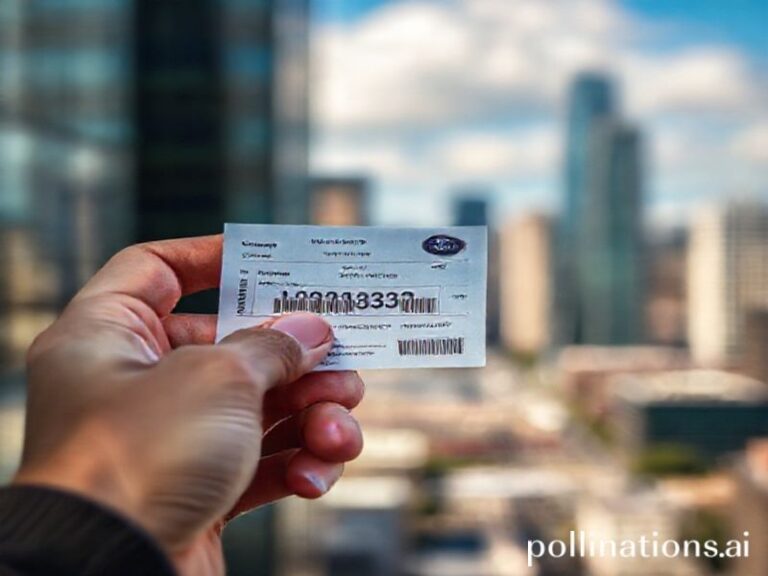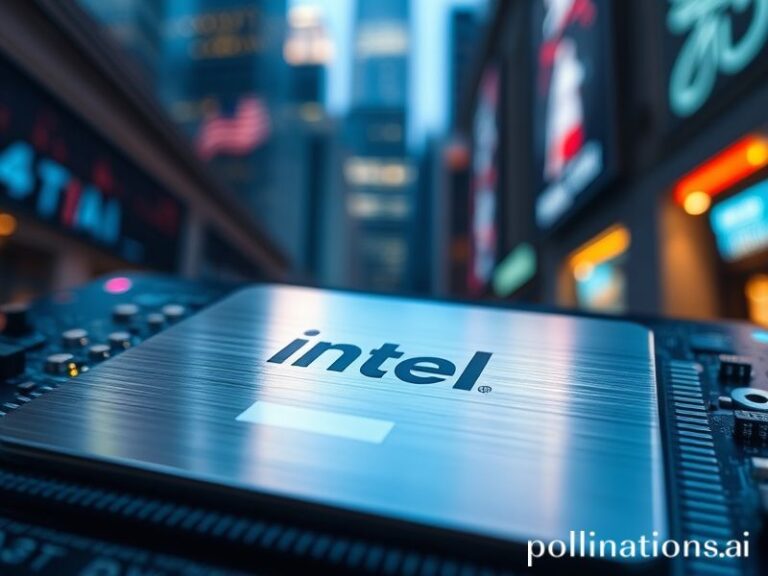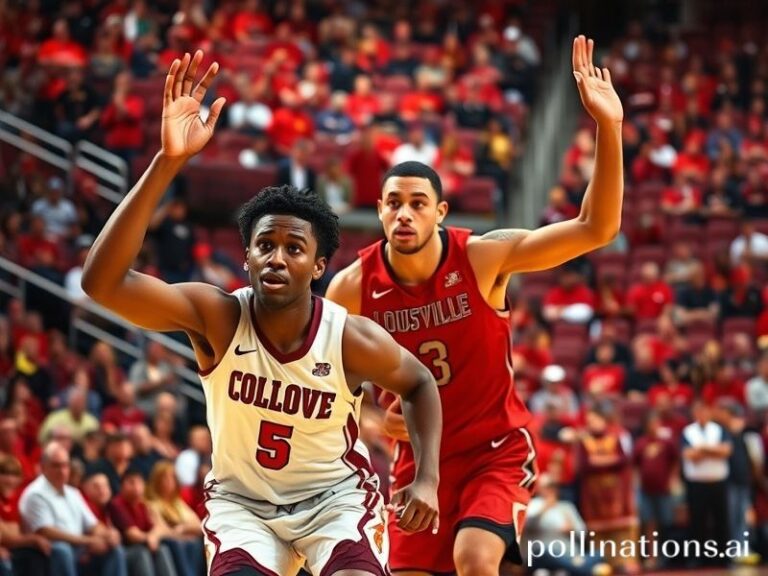Global Schadenfreude: Why the €143M EuroMillions Draw Is the World’s Most Honest Economic Report
EuroMillions Fever: How a Tuesday-Night Number-Mumble Became the Planet’s Most Honest Economic Forecast
The latest EuroMillions draw—€143 million this time, enough to buy yourself a medium-sized EU member-state or roughly three London parking spaces—did not merely rearrange the dreams of 200 million ticket-holders from Reykjavík to Réunion. It also provided the clearest snapshot available of global morale. Forget the IMF outlook; if you want to know how optimistic humanity feels, check how many grandmothers in Lisbon are buying two tickets instead of one.
Tuesday’s winning numbers (12, 23, 31, 38, 45, with Stars 2 and 9 for the sentimental masochists) produced exactly one jackpot winner, location still undisclosed. Rumor places the lucky soul in northern Spain, which is deliciously ironic: the country that gifted Europe the Inquisition now gifts one of its own citizens the power to buy absolution from every mortgage in the neighborhood. Meanwhile, the rest of the continent nurses the familiar hangover of statistical reality. Total tickets sold: 98.4 million. Total new millionaires besides the top prize: six. That, dear reader, is a 0.000007 % success rate—slightly better odds than finding a functioning printer in any UN office.
The draw’s ripple effects are already visible on three continents:
• Africa: Senegalese fintech startups report a 40 % spike in “micro-lottery” apps piggy-backing on EuroMillions hype. Because nothing says sustainable development like selling 20-cent dreams of a Paris penthouse to people earning two dollars a day.
• Asia: Chinese social media influencers live-streamed the draw at 3 a.m. local time, translating the numbers into fortune-cookie wisdom: “12 means harmony, 23 means your ex will text you.” Within minutes, TaoBao vendors were hawking bracelets engraved with the lucky digits—proof that late-stage capitalism has no cultural firewall.
• The Americas: Wall Street algorithmic traders quietly scraped EuroMillions data as a proxy for European consumer sentiment ahead of the ECB meeting. If ticket sales are up, people are feeling lucky; if they’re down, expect Draghi-esque gloom and a rush into German bunds. Yes, the fate of quantitative easing now rests partly on a drum full of numbered ping-pong balls spinning in a suburb of Paris.
Behind the glitz lies the grimmer ledger. EuroMillions is jointly run by France’s Française des Jeux, Spain’s Loterías y Apuestas, and the UK’s Camelot—an unholy trinity whose combined marketing budget could bankroll a small renewable-energy grid. Their greatest trick is linguistic: they call lottery proceeds “contributions to society.” In practice, that means governments siphon off roughly €4 billion a year to patch holes in education budgets they themselves keep drilling. It’s the fiscal equivalent of paying the arsonist to water your garden.
Psychologists call the phenomenon “near-miss reinforcement”—the delicious agony of matching four numbers and a single star. Economists call it “regressive taxation.” Your cab driver in Bucharest calls it “the only pension plan I’ve got left.” All three are correct; only one of them is laughing, and even that laughter tastes slightly metallic.
Yet for all the cynicism, the draw does serve one noble function: it is the last universally shared calendar event that is not geopolitical. Whether you’re a climate scientist in Tromsø, a refugee lawyer in Athens, or a crypto-bro in Singapore refreshing his phone in a Bali co-working space shaped like a giant avocado, those seven numbers arrive at the same second. For 180 seconds the planet holds its breath in perfect, multinational synchrony—then exhales into a collective sigh seasoned with envy, hope, and the quiet knowledge that tomorrow the odds reset to 1 in 139,838,160.
So congratulations, anonymous Spaniard. Enjoy the compound interest, the sudden cousins, and the existential vertigo. The rest of us will return to our regularly scheduled disasters—until next Tuesday, when the drum spins again and the world takes another €300 million placebo.







